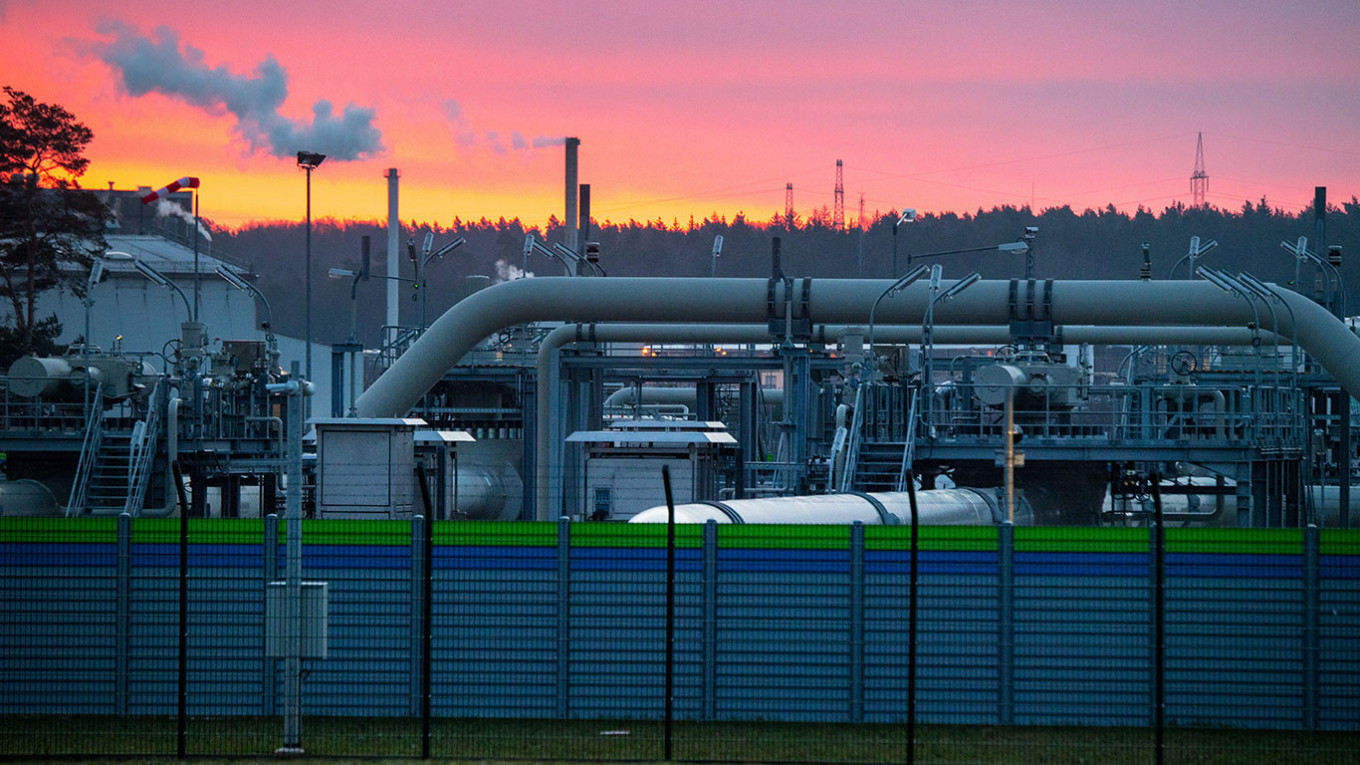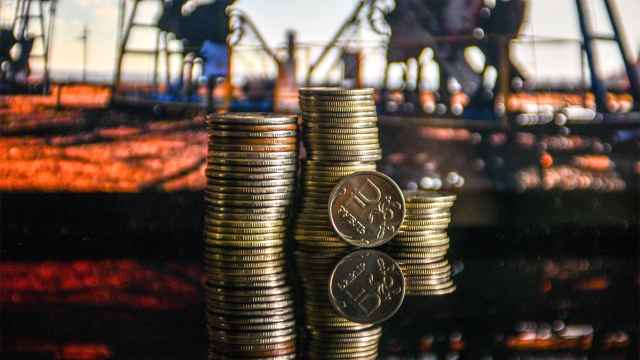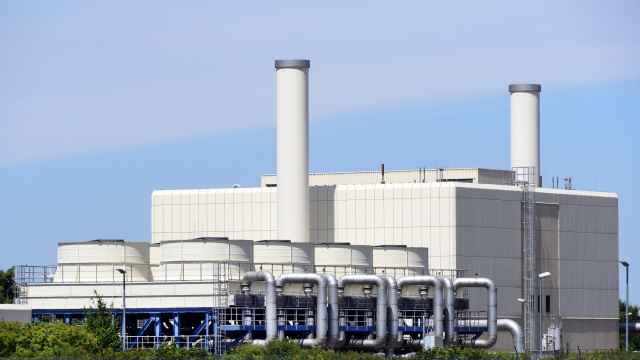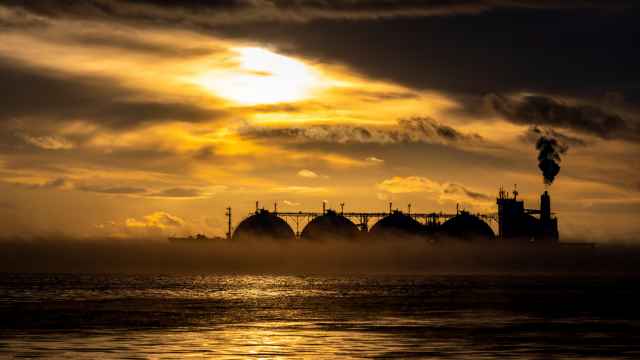The U.S. administration is talking up its ability to impose “swift and severe” sanctions on Russia that will deter it from military action against Ukraine. The problem is that economic sanctions are a two way street — and Russia has positioned itself to have the upper hand in an economic war.
Europe is on the brink of an energy crisis, in part engineered by Russia, and it would be a serious casualty in an economic war. In contrast the U.S. would benefit by expanding its gas exports to Europe.
Europe imports one third of its natural gas from Russia — with Germany getting half its imports from Moscow. Gas accounts for 30% of Germany’s total energy consumption. Russia is anxious to start up the $11 billion Nord Stream 2 pipeline, which brings gas directly to Germany across the Baltic Sea. The Trump administration, keen to export liquefied natural gas (LNG) to Europe, sanctioned the companies building Nord Stream 2 in 2019, delaying its construction. Biden pledged to waive those sanctions in May 2021, and in July Germany and the U.S. agreed to pay Kyiv $1 billion to compensate for lost transit fees, assuming Russia will cut back on gas deliveries via Ukraine.
The pipeline was completed in September 2021 but is still awaiting regulatory approval from the German authorities. Germany’s ruling coalition is split on the issue: the Social Democrats want the pipeline, the Greens do not.
Despite conceding on Nord Stream 2, the Biden administration is nevertheless interested in expanding LNG sales to Europe. Amos Hochstein, the State Department’s senior advisor for energy security, worked for the Tellurian LNG company from 2017-20.
In addition to the tussle over Nord Stream 2, Russia is also pushing back against the European Union’s policy of switching from long-term contracts to the spot market for natural gas sales. Gazprom prefers ten-year contracts — with prices determined by average global oil prices — to cover the costs of developing new fields. Qatar, the leading exporter of LNG to Asia, also relies on long-term contracts.
The EU’s ideological commitment to deregulation is behind its push towards spot prices. They are also favored by the powerful financial lobby, who can profit from speculation in futures markets, but are shut out by direct contracts between suppliers and customers.
Over the past year, Russia has cut back on gas sales through the spot market, while meeting its long-term contractual obligations to European customers. It also put less gas into storage facilities in Europe. This caused a squeeze in gas markets, with wholesale gas prices closing the year up 350%. Households across Europe are now facing monthly bills that are 30-50% higher, and some industrial gas users are cutting back on production of fertilizer, aluminum, steel and other energy-intensive products. Some small energy traders have gone bankrupt, and others are looking for government bailouts. One measure of German electricity prices has hit 300 euros per megawatt hour — up from an average under €50 over the last decade.
According to a report published by the Brussels-based Bruegel Institute released, Russia currently supplies 18 terawatt hours (TWh) of gas per week to Europe — against capacity of 54 TWh. Norway provides another 18 TWh and LNG adds 35 TWh. As of the end of January, Europe’s gas storage facilities were 38% full, down from an average of over 50% in previous years.
The continent barely has enough import capacity to make up the shortfall if Russia were to cease all gas deliveries. Most of the LNG regasification capacity is in Spain and the U.K., and there are not enough pipelines to ship that gas to other countries. Germany itself has no LNG terminals. In any case, there is little spare global LNG production and tanker capacity with much already locked into other long-term contracts.
The global LNG market of 5,000 TWh cannot sustain a sudden 1,000 TWh boost in demand from Europe. There would also be a crippling price war with Asian customers.
Europe would have to cut demand, and bring back some coal and nuclear power plants. Germany just closed three of its six nuclear plants, and intends to shutter the remaining three by the end of this year. These steps would be anathema to the Greens in the coalition — and would undermine the pledges at November’s COP26 summit in Glasgow to move away from coal.
If the weather turns cold, European gas reserves will be exhausted by March, and prices will skyrocket. Assuming the stand-off continues, there would be the challenge of replenishing gas storage for next winter. As the Bruegel report concludes: “reaching the scale required to entirely replace Russian volumes would be at best very expensive, and at worst physically impossible.”
A Message from The Moscow Times:
Dear readers,
We are facing unprecedented challenges. Russia's Prosecutor General's Office has designated The Moscow Times as an "undesirable" organization, criminalizing our work and putting our staff at risk of prosecution. This follows our earlier unjust labeling as a "foreign agent."
These actions are direct attempts to silence independent journalism in Russia. The authorities claim our work "discredits the decisions of the Russian leadership." We see things differently: we strive to provide accurate, unbiased reporting on Russia.
We, the journalists of The Moscow Times, refuse to be silenced. But to continue our work, we need your help.
Your support, no matter how small, makes a world of difference. If you can, please support us monthly starting from just $2. It's quick to set up, and every contribution makes a significant impact.
By supporting The Moscow Times, you're defending open, independent journalism in the face of repression. Thank you for standing with us.
Remind me later.






